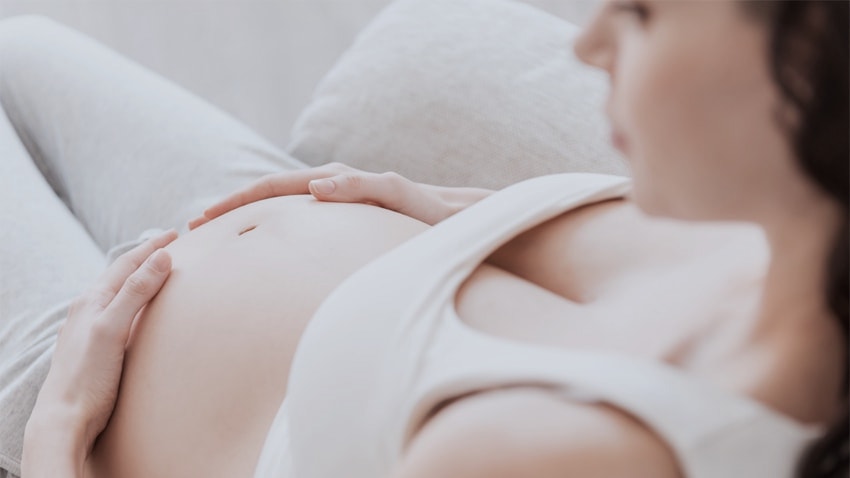 Specialists recommend to woman starting a family before the age of 30. The milestone is then the 35th birthday.
Specialists recommend to woman starting a family before the age of 30. The milestone is then the 35th birthday.
Older mothers are defined those who give birth to the first child after the 35th birthday. But motherthood after 30 is also linked to some possible risks.
Reduced egg count
With the age, the number of eggs (ovarian reserve) and the quality of eegs decreases. Ovarian reserve is formed in the ovaries already during intrauterine development and matures during the life. The likelihood of damage to the genetic information increases with getting older. Ovarian reserve is sensitive to toxic influences, life style and health issues woman experiance in her life. Eggs ability to be fertilized reduces logicly with older age.
After the age of 30, the chance of fertilisation drops by 20%, and after the age of 35, which is considered a turning point, by up to 50%.
Congenital developmental defects
Developmental defects also increases with age of furure mother. It has been shown that fetal chromosomal defects increase with maternal age. These defects are tested for as part of prenatal examinations.
Women under the age of 35 have a 99% chance of giving birth to a healthy baby, women under 40 have a 97% chance of having a healthy baby, and at 45, the chance is 87%. Which is still a high probability of giving birth to a healthy baby.
For women over 35, doctors recommend amniotic fluid sampling (amniocentesis), which will determine fetal damage without a doubt.
Premature birth
Women over 40 years of age have a higher risk of preterm birth and 3 times more likely to deliver by caesarean section. Also miscarry early in the pregnancy is linked to the age over 40. There are many women in this age group who have undergone cervical conization (surgical removal of part of the cervical tissue due to pre-cancerous conditions), which can increase the risk of preterm birth.
Other possible risks
Pregnancy at an older age increases the likelihood of multiple pregnancy. Women over 35 years of age have a 2% higher chance of conceiving twins, which can jeopardise a smooth pregnancy and delivery.
Older first-time mothers are more likely to have a poorly deposited placenta or a reversed fetal position. Older women may also suffer from a number of diseases that affect conception, pregnancy and childbirth, such as high blood pressure, obesity, diabetes or kidney disease.
A first-time mother in her 30s
Whether a woman is a first-time mother or a woman who already has a child also plays a significant role in terms of possible complications. If a woman has already had one pregnancy, her body has undergone a number of changes - the mammary glands have fully developed and the pelvis is ready for birth from the previous birth when the pelvis was more elastic.
Thus, childbirth takes place more easily than in a first-time mother. Older mothers are more likely to have to give birth by caesarean section. For a first-time mother at this age, a conventional birth would mean a higher risk of injury to the birth canal, including the perineum and the anal sphincter. And there is a higher risk of damage to pelvic floor structures and postpartum incontinence.
Benefits of getting pregnant later in life
Compared to the risks and disadvantages mentioned above, late pregnancy and motherhood has also some advantages. Not to mention that even young moms can have complications, because the course of pregnancy is not only influenced by age, but also by other factors and health issues.
Mental maturity
Older women have the advantage of being more balanced, more confident and more responsible about their health. They have aligned priorities and built a background that means security and stability for the child. They look forward to and enjoy motherhood. Children have their full attention and overall mothers have a more positive attitude towards their children. Pregnancies at this age tend to be planned and women are in a better economic situation.
Prevention of ovarian cancer
Scientific studies confirm that due to the pregnancy hormones, women get younger and thus have more energy than they had before getting pregnant. It is also proven that late pregnancy protects a woman more from ovarian cancer. Women who have a baby at age 25 have a 16% reduced risk of cancer, and women who have a baby at age 40 have a 58% reduced risk of cancer.
Other benefits of motherhood at an older age
Research also shows that women who give birth in their thirties or forties live to an older age. Scientists explain this by the fact that the genes that enabled them to conceive and give birth may also slow aging.
Not only is biological age important, but also social age, the age at which a woman feels it is time to be a mother. The psychological maturity of older mothers also creates a more positive psychosocial environment. According to studies by the University of Denmark, children of older mothers, aged between 7 and 15, are better off emotionally, socially and behaviourally.
It is true that older mothers worry more about their children and do not have as much energy for all the activities that young children require of them. But don't forget that age is only one factor, it depends on lifestyle, genetic predispositions and physical health.
